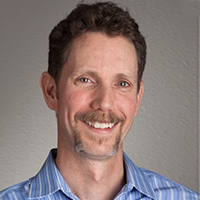It’s probably blatantly obvious to most of us how important mentors have been in our lives, whether they’re teachers, friends, uncles, bosses, or even students. Perhaps, though, it is not as obvious how it’s just as important for us to become mentors to someone just coming up. Pay it forward, as it were.
Besides my parents, the first mentor I recall is Theodore Grivas. He was a senior when I was a freshman at Highland High School in Albuquerque, NM (yes, the Highland High School of “Beavis and Butthead” fame). Ted took me under his wing and gave me some incredibly valuable advice, some of which was about being a musician.
But the majority of his advice didn’t have anything to do with playing the instrument, and instead was more about how to be a professional. He talked about how to be successful at gigging by being ultra-prepared by having the right equipment, wearing the right clothes, the importance of a written contract, and perhaps by far most significantly, having the right attitude. As time passed, I came to see that not every musician, no matter how good they were at playing, had the right frame of mind for gigging work.
One of my favorite quotes from Ted: “If your job is to roll tires from the back of the garage to the front, you should be so good at it that people would pay money to see you do it.”
This strikes right to the core of any endeavor, maybe like “The Zen of Anything.” And still to this day I employ many of the specific tips and techniques that he taught me about gigging. Because they work.
The Fundamentals
Later, while learning about audio at the University of Southern California, I was influenced by Thomas “Beno” May. At the time, he was the chief technical engineer for A&M Studio’s mastering facility, and later went to work for Bernie Grundman Mastering.
I took only two of Beno’s classes, but both were very influential on my career. The first was “Basic Electronic Theory,” and on day one, he started by drawing an atom on the blackboard. From there, we went into basic circuit design, RLC filters, op-amps, transformers, and much more. We ended that semester learning about power supply design, punctuated by my favorite quote from him: “If you don’t have power, you don’t have squat.” Sounds simple, but his notions of what it takes to have clean power have proven important in virtually all of my subsequent work in audio.
The second class was “Recording Studio Maintenance.” At that time, a lot of what we covered had to do with tape machine alignment. In an overall sense, though, it was a primer about how to apply what we’d learned in terms of theory into the real world of working in audio. Although I’d never pictured myself as a technician (I wanted to mix records), as it turned out, the theory and skills I learned from Beno ended up keeping me in the career field when perhaps I might have given up otherwise.
I was able to earn a living (barely) by aligning tape machines around LA, fixing consoles, making patch bay wiring harnesses, and generally being useful. It seemed at the time that everyone wanted to work in a studio, but few had the technical skills that were really needed. Interns were being “hired” for nothing, but technicians found paid work.
Another great mentoring moment from Beno came after I’d been out of school for about a year, working for a shambles of an operation as the “chief” (i.e. “only”) staff technician. I called Beno to tell him of my woes, expecting a sympathetic ear. But his response? “Every job is a learning experience. The key is to figure out what you’re supposed to learn.” As a result, I hung on to that job and ended up learning at lot.
The Bad, The Good
A corollary to this discussion is the significance of negativity. It can be crushing or equally as instructive. I remember my first AES convention in Los Angeles in September of 1990. Ah, the heady days of big tape machines, huge analog consoles, and the introduction of Meyer Sound HD1 monitors, which were very conspicuous in many booths with their green tweeter domes.
This starry-eyed audio student wanted to see, touch, and learn about my favorite pieces of audio equipment from Neumann, Schoeps, AKG, Studer, SSL, and all the rest.
While there, I had a negative encounter with a microphone distributor (who shall remain nameless) that I won’t ever forget.
I asked this gentleman what the differences were between his product and a reputable competitor’s seemingly similar product. He immediately erupted in a rant about how the other guys “didn’t know what they were doing,” deploying many “colorful” adjectives along the way. As he went on (and on), I realized there and then that I never wanted to respond to a customer (or anyone else for that matter) with that kind of a useless tirade.
Speaking of microphone distributors, another great mentor to me was Jeff Alexander at Sennheiser USA. It was at a subsequent AES convention where I met Jeff and some of the others at that company, and I liked everyone there. In fact, I remember thinking “I could work at that company with those people.” And later, that’s exactly what happened when Jeff left his post as the Neumann product manager to take a more advanced role at another company.
But before he left, Jeff coached me about the job I’d taken – providing pointers, helping me avoid the common pitfalls, so on. When I arrived and started looking through his files, the quality of his work left me awestruck. His market research was solid, his advertising efforts were first rate, and his product management skills were very evident. I knew then that I had big shoes to fill and wanted to live up to the challenge.
Take The Opportunity
Certainly no matter where we are in our careers, there are those we look up to and those looking up to us, even if sometimes we’re not aware. No doubt each of our mentoring experiences are different, but I invite you to reflect back at those experiences, both positive and negative, and think about how they’ve contributed to where you are now.
We all have the opportunity to be mentors for the younger generations of eager audio people. They love this business of sound, just as we do, and with a little thoughtful guidance, will one day be the leaders of our industry.















